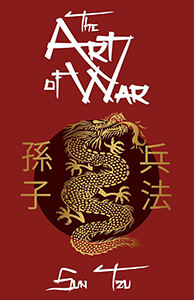The Art of War
“The Art of War” is an ancient Chinese military treatise attributed to Sun Tzu, a military strategist and philosopher believed to have lived in the 5th century BC. Here’s a summary of its key themes and insights:
Strategy and Tactics: At its core, “The Art of War” is a book about military strategy and tactics. Sun Tzu emphasizes the importance of careful planning, knowing oneself and the enemy, and adapting strategies to achieve victory in warfare.
Importance of Planning: Sun Tzu stresses the significance of thorough planning before engaging in any conflict. He discusses the importance of understanding factors such as terrain, weather, and the enemy’s strengths and weaknesses.
Deception and Intelligence: A central theme in the book is the use of deception and intelligence gathering. Sun Tzu emphasizes the importance of misinformation, spying, and understanding the psychology of the enemy to gain strategic advantages.
Flexibility and Adaptability: Sun Tzu advocates for flexibility and adaptability in strategy. He suggests that successful commanders should be able to adjust their plans based on changing circumstances and opportunities that arise during the course of a campaign.
Leadership and Morale: The treatise also discusses leadership qualities and the importance of maintaining high morale among troops. Sun Tzu emphasizes the role of discipline, unity, and motivation in achieving victory.
The Art of War as a Philosophy: Beyond its military applications, “The Art of War” has been interpreted as a guide to strategy and competition in various fields, including business, politics, and sports. Its principles have been applied to scenarios where strategic thinking and competitive advantage are crucial.
Quotes and Proverbs: The book is known for its concise and insightful aphorisms, which encapsulate its teachings on strategy and leadership. Examples include “All warfare is based on deception” and “If you know the enemy and know yourself, you need not fear the result of a hundred battles.”
Overall, “The Art of War” remains a classic text on strategy and warfare, valued not only for its historical significance but also for its enduring wisdom applicable to various aspects of human conflict and competition.

